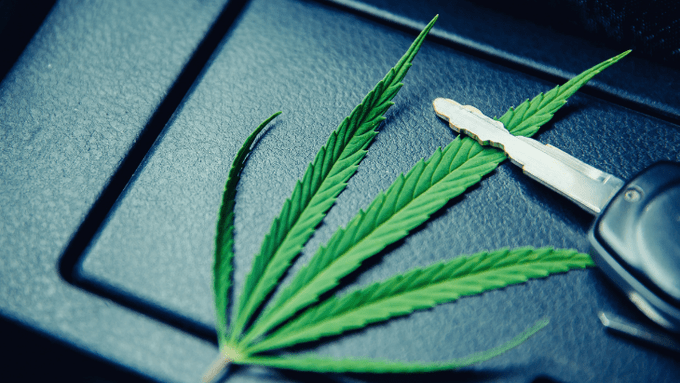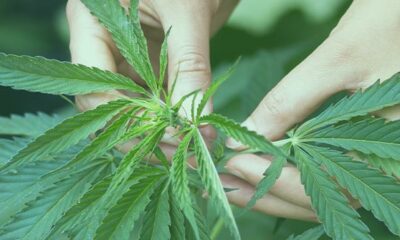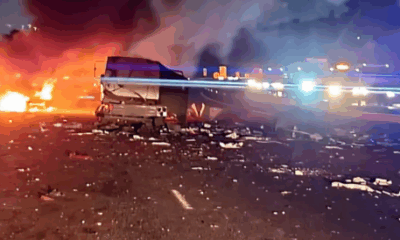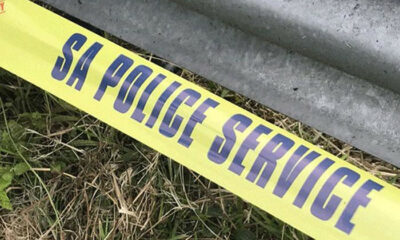News
Smoking Cannabis and Driving in South Africa: Why the Law Still Can’t Catch Up

The roadblock myth: “You can’t catch me”
If you’ve ever rolled up to a roadblock in Joburg or Cape Town, chances are you’ve braced yourself for the dreaded blow into the tube moment. But here’s the catch: while alcohol is easily detected through breathalysers, cannabis and pretty much every other intoxicating drug, slips right through.
And South Africans know it. “We’re a nation of people who are always looking for loopholes,” says one road safety advocate. With cannabis use decriminalised for private consumption, many assume that lighting up before hitting the road isn’t such a big deal. Unfortunately, that assumption is both legally risky and deadly on the roads.
Why the system doesn’t work
The weakness lies in the very tools police use. Breathalysers, which are the frontline defence at most roadblocks, are designed to detect alcohol, nothing else. Whether you’ve smoked cannabis, popped ecstasy, or taken prescription opioids, a standard breathalyser won’t flag it.
That means someone could be heavily impaired, weaving across lanes or reacting too slowly, and still pass the “test.” As Rhys Evans, managing director at ALCO-Safe, points out: “This is a serious problem because more and more people in the country are using intoxicating substances.”
New tech could change the game
Globally, many countries are already ahead of us. Mobile saliva-testing devices exist that can detect cannabis and other drugs within minutes. All it takes is a quick swab, and in about five minutes the analyser delivers a result.
For South Africa, this could be a game-changer. Unlike urine tests, which are invasive, slow, and often impractical on the roadside, saliva testing is quick, portable, and accurate. If rolled out at scale, it would be a strong deterrent for drivers who think cannabis makes them invisible to the law.
The legal roadblock
Here’s the real kicker: even if police had the equipment tomorrow, the law isn’t ready. South Africa’s Road Traffic Act does ban driving under the influence of drugs, but it doesn’t provide clear testing standards.
There are no official thresholds for cannabis impairment, no guidelines on how roadside tests should be conducted, and no legal framework for presenting those results in court. Until Parliament amends the law, most cases would crumble under legal challenge.
That means officers also need training, not just in using new devices, but in ensuring saliva samples are taken, stored, and processed in ways that hold up in court.
Why this matters now
South Africa already struggles with some of the highest road fatality rates in the world. During long weekends and festive seasons, thousands of drunk drivers are caught, but how many drugged drivers slip past?
Public perception is another challenge. Many cannabis users see smoking and driving as “less dangerous” than drinking and driving. But science paints a different picture: cannabis impairs coordination, slows reaction time, and affects decision-making all crucial skills for safe driving.
What comes next
The pressure is mounting for government to update legislation and introduce modern testing technology. Advocacy groups say it’s a matter of urgency, not convenience.
Until then, South Africans should remember: just because you can get away with smoking and driving under the current system, doesn’t mean it’s safe or legal.
As Evans warns, “The assumption that you can’t be caught is not incorrect. But the assumption that you’re not a danger to others is dead wrong.”
Cannabis use in private may be legal, but driving under the influence is not. South Africa’s laws may be behind, but sooner or later, the system will catch up and when it does, the excuses won’t hold.
{Source: The Citizen}
Follow Joburg ETC on Facebook, Twitter , TikTok and Instagram
For more News in Johannesburg, visit joburgetc.com



























